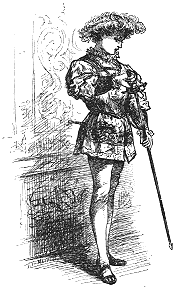Talking, talking...
Valeriy, who lives in Russia, has sent me an e-mail. He asks whether I can make a podcast about these words – “say”, “tell”, “speak” and “talk”.
Well, that is easy, I thought. So I sat down to write a podcast about when we use “say” and when we use “tell” and so on. And after an hour, I realised that I could not do it. English is too complicated. There are far too many words in English and there are so many different ways of using them. So I thought, I will not try to explain everything. I shall just explain a few things – the most important things. I will write a few rules, and if my listeners learn these rules, they will be right most of the time. Please remember that “say”, “tell” and “speak” are irregular verbs. They go like this – I say, I said, I have said; I tell, I told, I have told; and I speak, I spoke, I have spoken. “Talk” is regular – I talk, I talked, I have talked. Everybody clear? Then let’s begin!
I want you to imagine that you are reading a comic book, about Batman perhaps. In many of the pictures there is a bubble coming from the mouth of one of the characters. It contains the words which the character is saying. We often call this a “speech bubble”.
Here is my RULE NUMBER 1. If you can imagine a speech bubble, with words in it, then you can always use the word “say”; like this :-
- Kevin says, “I am going to the football match on Saturday”.
- Batman says, “I have only five minutes to save the entire planet.”
- Joanna says that she will go to the supermarket tomorrow.
- Kevin says to Joanne, “Is it OK if I go to the football match on Saturday?”
When we want to explain who we say something to, we always use the word “to” – I said to him that I would be late. We NEVER say “I said him that I would be late”.
And here is RULE NUMBER 2. If there is no speech bubble with words in it, then you can use “talk” or “speak”.
- I will speak to my boss tomorrow about whether I can take a day off work.
- Kevin talks to George about the football match.
- Today, our teacher is going to talk about irregular verbs in English.
So you see, “speak” and “talk” can tell us who is speaking or talking; who the speaker is talking to; and what sort of thing the speaker is talking about. But they do not tell us about the exact words which the speaker uses. There is no speech bubble with words in it. Very often, “speak” and “talk” mean exactly the same, and we can use them interchangeably (that is, we can replace one of them with the other). I think that we use “talk” more often than we use “speak”.
And how about the last word which Valerij wants me to explain – the word “tell”? Here comes RULE NUMBER 3. “Tell” means “give information”. And we can use “tell” when there is a speech bubble, and also when there is no speech bubble, provided that we mean “give information”. Nearly always, when we use “tell”, we also say who the speaker is talking to. Like this:-
- Joanne tells her boss, “I have nearly finished the report that you asked for”.
- Kevin tells Joanne that he wants to go to the football match on Saturday.
- David told me about his holiday.
- He told me that he went to Spain, and that he had a great time there.
- John told me how to find his house.
- You asked me a question; now I will tell you the answer.
- I looked at my watch and told him the time.
- At the end of the school day, the teacher told the children a story.
I hope this helps you, Valeriy. Please keep sending me your comments and questions, either by e-mail or by leaving a comment on the web site. I shall do my best to reply to all of them. There is a vocabulary note attached to the podcast today, and also a quiz, so you can test how well you understand the difference between “talk”, “speak”, “say” and “tell”.
Download MP3 (6:33min, 3MB)




























